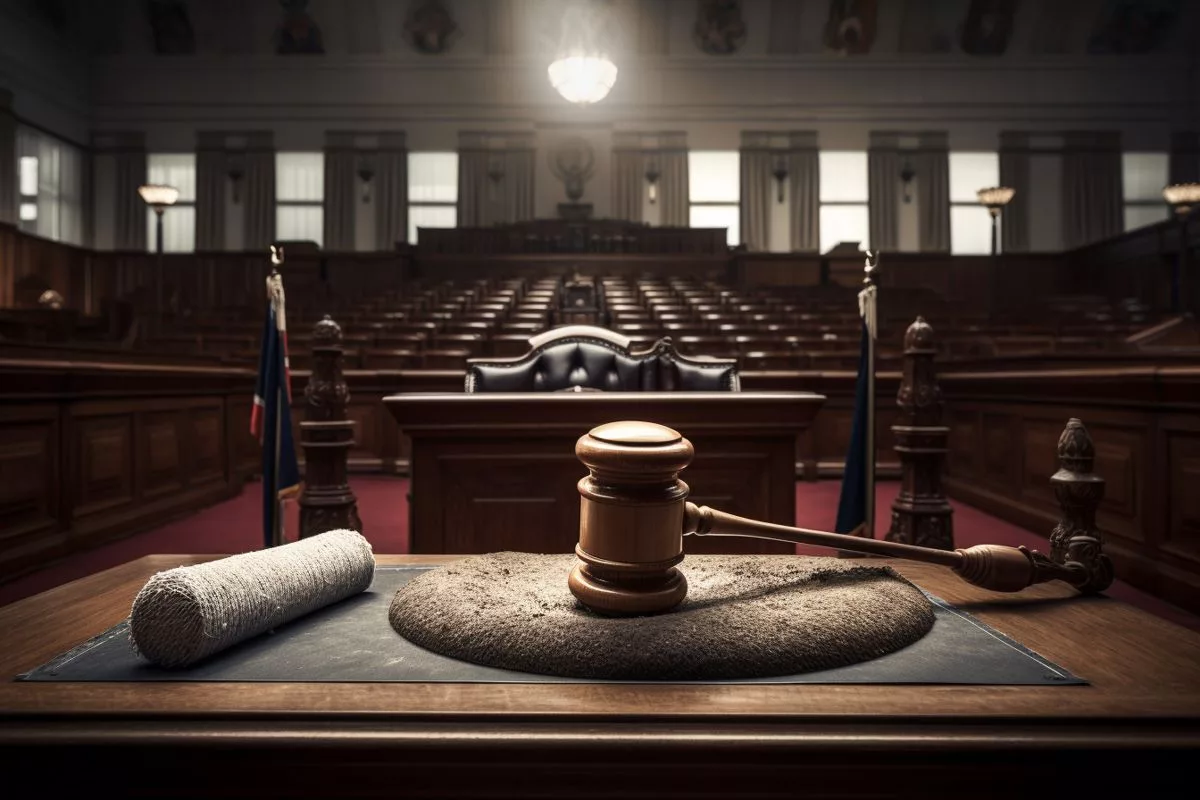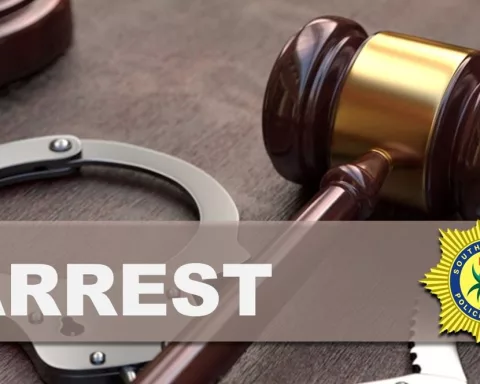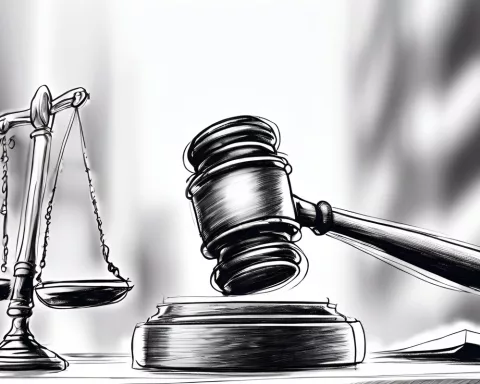The South African legal system is witnessing a remarkable bond of empathy and solidarity between June Steenkamp, the mother of deceased Reeva Steenkamp, and Rob Matthews, who lost his daughter to a violent crime. Despite facing injustice, the families are resolute in their quest for justice, with Matthews fighting to prevent the release of his daughter’s killer, and Steenkamp refraining from opposing Pistorius’s parole hearing. This unique kinship forged from shared tragedy underscores the resilience of the human spirit and the necessity of robust victim representation in the justice system.
A Tale of Shared Grief and the Pursuit of Justice: A unique instance of empathy and camaraderie is taking shape in the South African legal system as June Steenkamp refrains from opposing the forthcoming parole hearing for Oscar Pistorius, despite his fatal shooting of her daughter, Reeva. The connection between June Steenkamp and Rob Matthews, a man who understands the pain of losing a child to violent crime, highlights the resilience of the human spirit in the face of shared tragedy.
A Glimmer of Solidarity amidst Judicial Struggle
In the often harsh and relentless South African legal system, a unique instance of empathy and camaraderie is taking shape. June Steenkamp, the grieving mother of the deceased Reeva Steenkamp, has stated that she will refrain from opposing the forthcoming parole hearing for Oscar Pistorius, slated for 24 November. Even so, the echo of her voice will reverberate in the courtroom via her heartfelt victim impact statement, reflecting the depth of a mother’s grief.
This shared suffering has forged an unlikely bond between June and Rob Matthews, a man who understands the pain of losing a child to violent crime. Rob’s daughter, Leigh Matthews, also fell prey to a notorious crime that captivated South Africa. Rob is well-acquainted with the intricacies of the parole procedure and will bring June’s sentiments to the parole hearing, remaining resolute in the face of grave injustice.
Tania Koen, the advocate for Steenkamp’s family, highlighted this bond, expressing, “Rob and Sharon Matthews extended their support to June and Barry – while he was still alive, and they have been supporting each other ever since. The connection between the families is remarkable, but it’s also incredibly heartbreaking.” This unexpected kinship, borne from a shared tragedy, testifies to the resilience of the human spirit.
Shadows of Tragedy and Struggles for Justice
In 2004, Leigh Matthews, an ambitious student at Bond University, was brutally abducted and killed at the young age of 21 by Donovan Moodley. Fast forward a decade, and the horror of violent death struck South Africa again. This time, Reeva Steenkamp was fatally shot by her boyfriend, Oscar Pistorius, who claimed he mistook her for an intruder in his Pretoria home.
The path of justice following these two horrific incidents diverges at this juncture. Pistorius stands on the brink of parole, while the Matthews family persists in their efforts to thwart Moodley, sentenced to life, from experiencing freedom. Moodley, showing no signs of backing down, is challenging the parole board’s recommendation against his early release.
Nevertheless, the Matthews family has managed to secure an urgent order for participation in the parole process. Moodley’s review is due to be submitted to the Gauteng High Court in the upcoming week, marking yet another meaningful stride in their unwavering quest for justice.
Emphasizing Victim Representation in Legal Proceedings
June Steenkamp’s words, to be delivered by Rob Matthews, are set to resound in the courtroom. They will detail the shattering impact of Oscar’s actions, including the heartbreaking loss endured by her and her late husband, Barry, who recently succumbed to worsening health issues. While being open to the possibility of Pistorius’s early release, June asserts her right to be part of the conversation surrounding justice for Reeva.
Koen highlights the critical role of victims’ voices in the judicial process, stating, “The law is explicit: victims have a right to speak, and everyone should be cognizant of that fact.” This affirmation of victims’ rights resonates with Reeva Rebecca Steenkamp’s advocacy, underscoring the necessity for robust victim representation in the justice system. It doesn’t only steer the course of justice but is also an integral part of the healing journey, providing a degree of closure and a sense of advocating for those tragically lost.
1. What is the bond between June Steenkamp and Rob Matthews?
June Steenkamp and Rob Matthews have formed a unique bond of empathy and solidarity due to both losing a child to violent crime. Matthews lost his daughter, Leigh, in 2004, and Steenkamp lost her daughter, Reeva, in 2013.
2. What is June Steenkamp’s stance on Oscar Pistorius’s upcoming parole hearing?
June Steenkamp has stated that she will not oppose Oscar Pistorius’s parole hearing, which is scheduled for November 24th.
3. How will June Steenkamp’s words be heard in the courtroom?
June Steenkamp’s words will be delivered by Rob Matthews in the courtroom. She will provide a heartfelt victim impact statement, reflecting the depth of a mother’s grief.
4. What is the Matthews family’s struggle for justice?
The Matthews family is persisting in their efforts to thwart Donovan Moodley, the man who abducted and killed their daughter, Leigh, in 2004, from experiencing freedom. Moodley is challenging the parole board’s recommendation against his early release.
5. What is the critical role of victims’ voices in the judicial process?
Victims’ voices play a critical role in the judicial process, as affirmed by Tania Koen, the advocate for Steenkamp’s family. Koen stated that victims have a right to speak, and everyone should be cognizant of that fact. Robust victim representation in the justice system is necessary and provides a degree of closure and a sense of advocating for those tragically lost.
6. What does the bond between June Steenkamp and Rob Matthews testify to?
The bond between June Steenkamp and Rob Matthews, forged from their shared tragedy, testifies to the resilience of the human spirit. It highlights the necessity of robust victim representation in the justice system and emphasizes the critical role of victims’ voices in legal proceedings.












